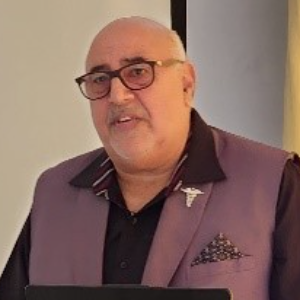Title : Overcoming the challenges of drug resistant fungal infections in developing countries
Abstract:
Over the past few decades fungal infections have emerged as a constantly on the rise global health challenge, resulting in approximately 1.7 million deaths every year. Moreover, the long-term therapeutic application and prophylactic use of antifungal drugs in high-risk patients has promoted the emergence of (multi)drug-resistant fungi, including the extremely virulent strain Candida auris. Therefore, fungal infections have become increasingly severe and an even bigger challenge for developing countries which are more vulnerable to its impacts. High burden of infectious diseases, poverty, weak governance and health systems, and low awareness remain major challenges in the fight against AMR leading to increased prevalence of HAIs including fungal infections, and superbugs like C. auris. Infection-Prevention-Control (IPC) is a key to enhancing healthcare outcomes against such challenges.
National Institutes of Health (NIH)-Pakistan with the support of CDC, initiated a study to improve the early diagnosis and surveillance of C. auris. The study focused on capacity building in laboratory diagnostics, IPC strategies and implementing robust learning data dashboards with provincial stakeholders. After thorough Gap-assessments through site visits and detailed mixed methods at 12 sentinel sites, representing all regions/provinces of Pakistan. Using a phase-wise approach, capacity at each site was enhanced by providing hands-on-trainings and materials to enhance fungal diagnostics, IPC and surveillance of fungal infections at the healthcare facilities.
In two years following the launch of the study, in Microbiology Diagnostics all 12 sites initiated reporting fungal infections to NIH and 5 of the sites have been enabled in confirming their diagnosis independently apart from being the part of the collective reporting system. Data dashboards were developed and implemented ensuring robust data collection and sharing from all sites. A total of 1323 samples have been received at NIH for final identification indicating different fungal pathogens in isolates by March ‘2024 out of which 21 have been C. auris. Moreover, IPC programs have been initiated at 3 of the sites where they previously did not exist and capacity building activities have been performed to improve the IPC programs at all sentinel sites particularly in terms of outbreak preparedness against fungal pathogens (particularly C. auris).
C. auris is a multidrug-resistant pathogen and is prone to misidentification by available conventional methods, it becomes difficult to detect and manage C. auris infection and also limits the therapeutic options against this deadly pathogen. The emergence of multidrug-resistant C. auris advocates and amplifies the vigilance of early diagnosis and appropriate treatment and management of fungal infections, particularly in developing countries to prevent outbreaks and adverse healthcare outcomes. Through this study a successful and sustainable model for National Fungal Disease Surveillance System (NFDSS) has been devised to enable rapid diagnosis and surveillance of prevalent fungal pathogens throughout Pakistan. Antimicrobial stewardship involving robust IPC methods should be established in hospitals to ensure judicious and appropriate antimicrobial use. Adoption of these strategies will assist developing countries overcome their increased vulnerability to growing AMR.



